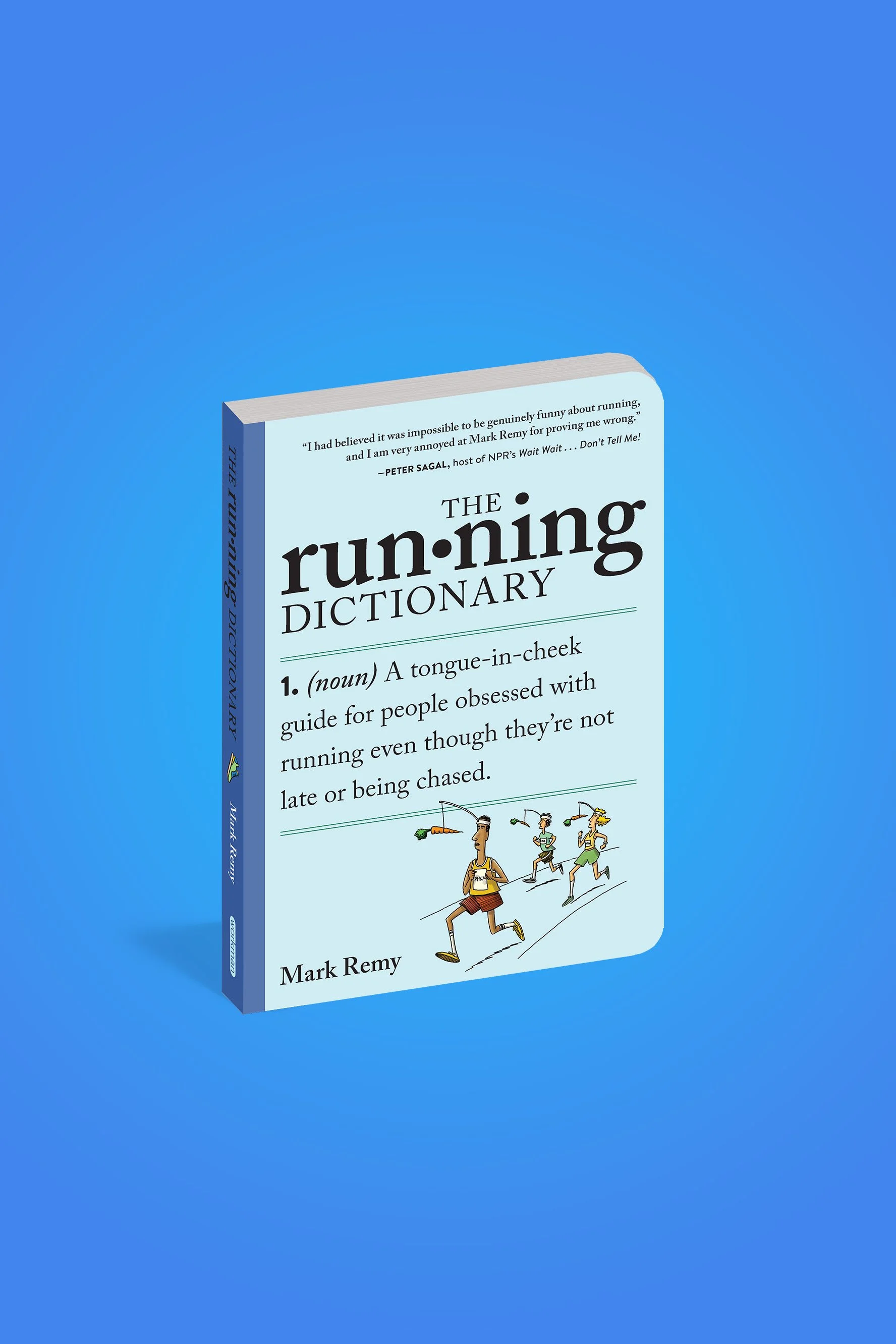The Only 3 Things You Need to Know to Begin Running (Really)
/istockphoto.com
If you've been reading Dumb Runner for any time at all, you know that I like to "have fun with it," as they say. That while I take running seriously, I do not take myself seriously. This explains why so much of my content is stupid.
It also presents a challenge—namely, How do I get readers to take me seriously when I have something serious to say?
I’m still working on that. For now, however, I'll just come out and say it: This article contains some serious advice that I seriously believe will benefit anyone who cares to read it. Seriously. I know, that's a bold statement. But I mean it.
I felt compelled to publish this article now for two reasons:
One, it's January, which means many folks are deciding to take up running for the first time, or to resume running after a long break.
And two, there is a bewildering amount of information out there for new runners to process, in the form of tips, advice, guidance direction, instruction, warnings, prescriptions, admonitions, dos, and don'ts. It comes at you from every direction, via books, magazines, and podcasts; websites and blogs; and—Lord help us all—social media, where Twitter alone can leave you convinced that if you don't tread very carefully you will definitely wreck everything with your stupid ignorance, e.g.,
4 treadmill mistakes you need to avoid!
Why runners should do Pilates!
5 training mistakes EVERY runner makes at some point!
6 foods you should NEVER eat before a run!
10 foods that are making your inflammation worse!
7 postrun eating mistakes you're probably making!
3 foam roller mistakes you might be making (and how to avoid them)!
Do runners need dairy to lose weight?
How long should I wait to run after eating?
Those are all real tweets, by the way.
This bothers me.
It bothers me because most of this stuff is unnecessary or contrived—solutions in search of problems. Some of it will flatly contradict something else you've just read. Much of it is just nonsense.
Worst of all, it's overwhelming. It can paralyze. Far from helping, this firehose of "advice" can actually dissuade would-be runners from taking their first step. Newbies can and should disregard nearly all of it, and they deserve to be told so.
Let me repeat that, because it's so important: If you are a new runner, you can and should ignore virtually everything you see, hear, and read about running.
That is good news, because it frees you to focus on a few common-sense, general principles. Remember these three broad guidelines and you'll do just fine. I promise.
1. Just Go
The first step truly is the hardest, so stop thinking about running and run. Go out the door and do it. Sooner the better.
Go slow. If that means something closer to a brisk walk, fine. At this point, speed is irrelevant. At this point, in fact, worrying about your pace can only lead to bad things. So don't worry about it.
Go short, too. If that means running (or walking) around the block, or to the corner and back, that's fine too. Just as with pace, worrying about distance can only lead to bad things.
Wear something comfortable. Doesn't have to be "running gear." Leave the Fitbits, GPS watches, etc. at home. At this point they’ll do more harm than good.
2. Be Patient
Making running (or exercise in general) a routine is hard, and it won't happen quickly. But it is crucial. Schedule 20 or 30 minutes for it on your calendar, like an appointment. Set up reminders. Promise to meet a friend. Whatever gets you out there.
As running begins to feel easier—and it will, sooner or later—you may be tempted to push yourself to go faster and farther, to do "too much, too fast." That's a natural impulse. Resist it. This is the most common way new runners sabotage themselves.
3. Pay Attention
Pay attention to your body; don't be afraid to back off or make an adjustment if something feels not quite right. Pay attention to your surroundings; not just for cars and other potential threats, but also to notice the world around you. You'll be surprised how much wonder and beauty is out there, and in how many surprising places, when you simply take the time to notice it. Pay attention to your thoughts; running has a wonderful way of lifting the fog, bringing perspective and clarity. Take advantage of that.
Pay attention, too, to where you came from and where you're going. It's clichéd to say so, but running really is a journey and it can be an amazing, humbling thing. Remember that.
...and that's it. Really. Just go, be patient, and pay attention. Remember those three things and you'll do well.
All the rest? Ignore it.
This doesn't mean you can't have, or ask, questions. Of course you can! (In fact, you can Ask Dumb Runner—I’m always happy to answer reader questions.) Just don't let yourself get buried in them. Don't overthink.
Once you've been at it a while, once you feel comfortable and established as a runner... At that point, yeah, you may want to dig deeper and get a bit more "advanced." This will mean dipping a toe back into that ocean of information—the tips, advice, and so on.
Just remember that you don't have to. You can be a happy, healthy runner for the rest of your life without once fretting over the "7 postrun eating mistakes you're probably making."
Because in the end, running isn't about tips, advice, direction, instruction, warnings, prescriptions, and admonitions. It's not about books, magazines, podcasts, websites, blogs, or social media.
Running is about you—your legs, your heart, your soul.
Remember that, too.
Still have questions...? Just Ask Dumb Runner.
Or click to learn more about TRAINING, NUTRITION, GEAR, or MOTIVATION.



